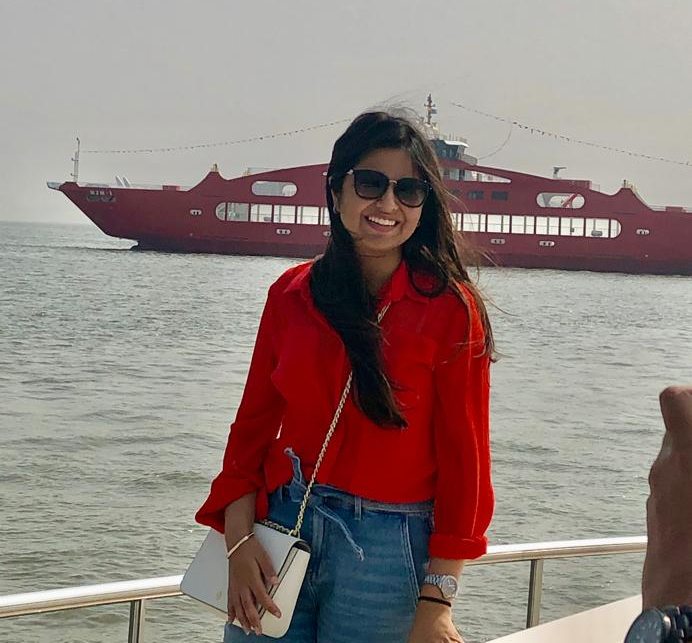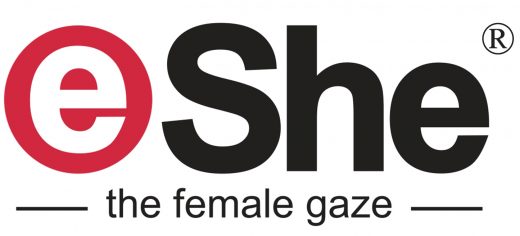Less than two percent of the global workforce in the maritime sector is made up of women. In India, the proportion goes down even further – to 0.5 percent. Given this scenario, being a woman who has not only chosen to work in the maritime sector but also lead and run a large shipping business is a rare feat indeed.
Devika Saigal and Prity Kumar are two such women. Both are based in Mumbai, which is no surprise given the city’s progressive culture and ancient links to shipping and maritime trade. Both were part of startup teams for completely new lines of business. And both are go-getters who refuse to step back in the face of challenges.
Ferry Tale
Devika Saigal, the cofounder and CEO of M2M Ferries and Mandwa Jetty, is a young woman of many firsts. Her ferry service is the first international standard Ro-pax service in Maharashtra, which means passengers and vehicles can ‘roll on and roll off’ from one port to the other with ease. She was the also first to transform the face of the old jetty in Mandwa by introducing eateries, public conveniences, activities for children and so on, making it a pleasant stop for travellers on both sides.

Launched in 2020, the ferry service has cut travel time from five hours by road (111 km) to just one hour by sea (19 km) for travellers headed from Mumbai to Mandwa jetty, the gateway to the picturesque coastal town of Alibaug. This has led to an indirect benefit of boosting the beach town’s economy, and benefitting its cottage industry and small businesses, many of them run by women.
“Earlier, Alibaug businesses were seasonal and thrived only for eight or nine months a year,” Saigal says. “Now they have customers all year round.” This has further encouraged the education and healthcare sectors here, as more locals have easier access to Mumbai and vice versa.
Saigal has the advantage of being the third generation in the shipping industry – her grandfather worked in the merchant navy while her father focused on cargo, logistics and port management. But Saigal was the first to get into passenger transport and tourism in the family.
She was a 23-year-old marketing graduate from the University of Bath, UK, when she took up the transformation of Mandwa jetty, and a newly married 29-year-old when she launched M2M Ferries.

Often the only woman in boardrooms filled with 20 or 30 men, Saigal is keenly aware of the gender imbalance in her field of work. So she has gone the extra mile to hire women on her 90-person-strong team. “Our first chief engineer was a woman from Greece. We also have women staff in administration and hospitality. It’s a relatively new industry so it will take time to achieve gender parity – but we are trying our best,” says the 32-year-old.
Riding the Wave
Women’s participation is also a cause that’s close to Prity Kumar’s heart. Cofounder and group managing director of the Alphard Group, her entrepreneurial journey began in 2009 when she joined hands with her husband, Captain Alok Kumar, to launch a company offering maritime logistics and marine services across India, Athens, London, California, Dubai and Singapore.
“At 28, with two young daughters, I was driven to create a world where women are afforded the same opportunities as men in the workforce. It wasn’t just about personal ambition but about paving the way for a more equitable future for my daughters and for all women,” says Kumar.
Kumar’s journey is all the more remarkable because of the transition from her roots. Born in a small town in Bihar, she was raised in a society where early marriage was a norm for girls. “I found myself in a similar situation, yet I embarked on a different path,” she says.
After earning her Bachelor’s in psychology and a Master’s in multimedia, she and her husband set their sights on the shipping industry. “It wasn’t just about business; it was about seizing an opportunity to contribute to an industry ripe for growth and innovation. About empowerment and creating a legacy of change for generations,” she avers. That, and the fact that the couple wanted to be their own boss!
As first-time entrepreneurs in their family, Kumar admits it was overwhelming to carry the “hopes and dreams of our entire family on our shoulders”. But, as a family, she also had the benefit of a “collective determination to break barriers”, she says.

The couple started out with a small team of just five members besides themselves, initially focusing on ultrasonic thickness measurement services. They quickly expanded to ship security and within two years emerged as the forerunner in the field. They now also offer underwater services, tugs and barges operations, and strategic acquisitions of cape vessels and offshore vessels.
With Alphard Group headquartered in Mumbai, Kumar oversees day-to-day operations and spearheads the human-resources initiatives for their 60 employees and a global network of over 500 members managing onshore and offshore responsibilities. “From the outset, I’ve intentionally promoted gender diversity within our team,” she affirms. Alongside, she runs several social-welfare initiatives and takes time out for her personal hobbies, such as martial arts and fitness.
Rough Seas
Success always comes with obstacles and challenges, and it’s no wonder that both Saigal and Kumar have had a lioness’s share of those. For Saigal, her company’s launch event itself turned into a nightmare of epic proportions when the pandemic struck.
“The launch was to be on Sunday. The chief minister of Maharashtra was our chief guest. Flowers had been set up. We had a brand-new ship. We had a huge loan. It was a big plunge for us. Then the evening before that, it was announced that Maharashtra was going into lockdown. It was a tragedy!” she shares. The launch was cancelled, and the ship could not begin operations till August that year.
Saigal – who had got married in December 2019 and laughs about how her new husband “saw me pull my hair apart right from day one of marriage” – took courage from her parents. “My father would turn up in office even when there was no one there. We had so much riding on this, so many people’s hopes and aspirations. We had to keep our morale up and keep the hope alive,” she says.

The pandemic eventually became a blessing in disguise because of the new work-from-home culture. People preferred to move out of the crowded city to quieter, greener, cheaper satellite towns – such as Alibaug. The ferry became a hit with this new demographic. To date, the Ro-pax service has transported 20 lakh passengers, and 4 lakh cars and bikes, helping to reduce road-traffic congestion in the region.
For Kumar, the challenges have been more persistent. “Our main challenge lies in navigating the complexities of international operations, particularly concerning diverse time zones, work cultures, and languages,” she shares. Plus, given the dynamic nature of marine laws, which vary significantly from port to port, the team also needs to stay abreast of legal frameworks to ensure compliance across diverse jurisdictions.
Rocking the Boat
As a woman, entrepreneurship comes with many more responsibilities and restrictions than for men. “Hats off to Indian women,” marvels Saigal, “especially mothers. It’s amazing what they do out there. Men don’t have it in them to multitask the way working mothers do. No matter how progressive a society is, the onus of managing the home always falls on the woman, so they become pros at multitasking.”
Women entrepreneurs also bring in a unique perspective and skill set to businesses, notes Kumar, and are adept at problem-solving and building strong networks. “Women leaders tend to bring a collaborative and inclusive approach to decision-making, fostering a supportive work culture that benefits employees and the organisation,” she says.
And yet, she adds, women in leadership still face significant challenges in India, including the pervasive gender bias and stereotypes in the business world, which leads to unequal opportunities and barriers to advancement for women. “Despite this, women entrepreneurs exhibit remarkable strengths and resilience,” Kumar asserts.
Another important element of these women’s success is family support and encouragement. eShe had reached out to a third candidate for this article – a power-woman who cofounded and runs a hugely profitable cargo and logistics firm with a global network, also based out of Mumbai. However, due to family constraints and pressure from male relatives, the 50-year-old mother of two declined to be interviewed.
It only goes to show that, in India, no matter how successful a businesswoman may be, socio-cultural restrictions continue to exist even in metropolitan cities, and bind women from achieving their fullest potential.
Kumar agrees. “To support the growth and success of women entrepreneurs and leaders in India, it’s crucial to address systemic barriers, promote gender equality, and provide access to resources and mentorship opportunities,” she says. Only then will women’s diverse talents and perspectives be adequately tapped for innovation and growth in male-dominated industries such as shipping.


I salute these brave women who are a role model for countless others in India. Kudo!! Shakil Ahmed (Shokee)Lahore Pakistan
LikeLike
Thanks. More later soon.Shakil Ahmed (Shokee)Lahore Pakistan
LikeLike